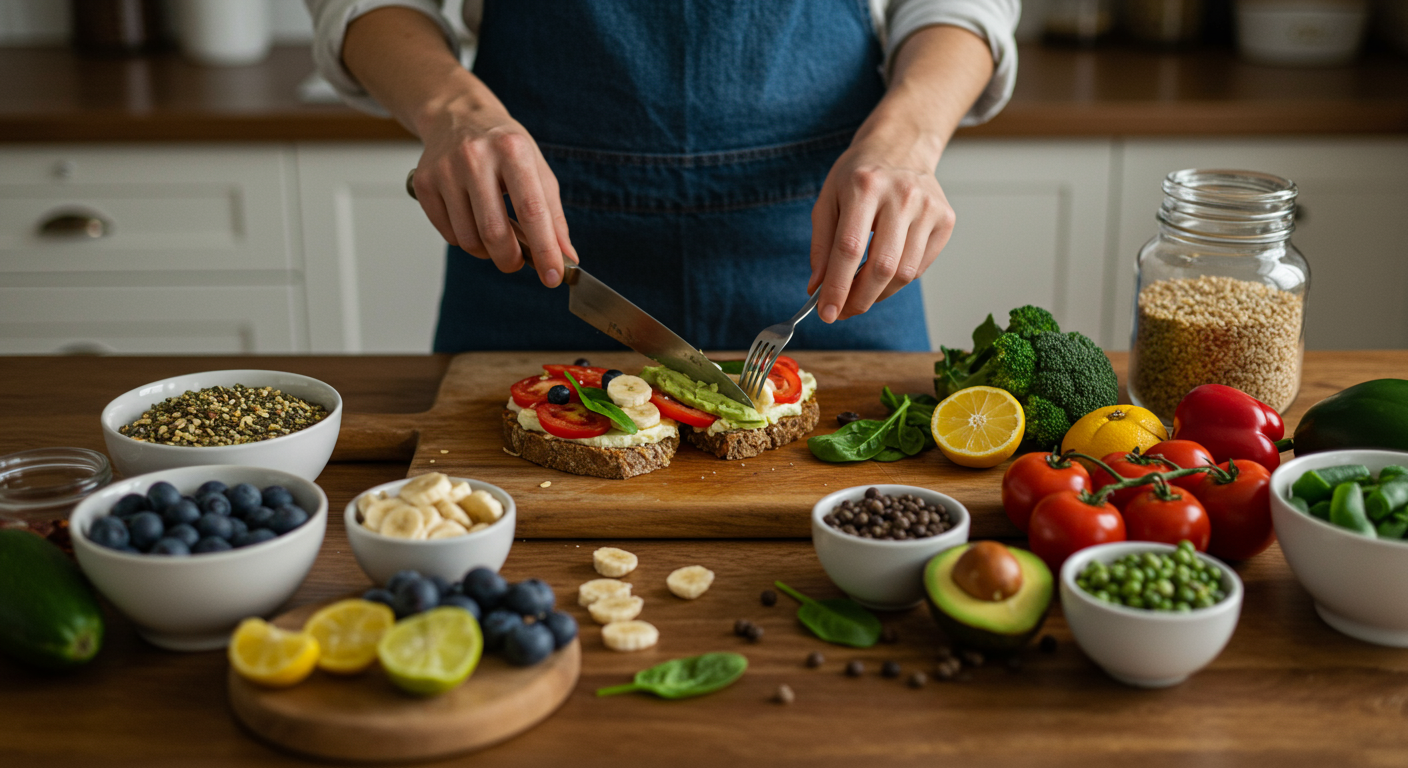Are you new to veganism and wondering how to ensure you're getting all the essential nutrients your body needs? This guide is designed to help you navigate the world of vegan nutrition with confidence. We'll cover essential vitamins and minerals, practical tips for incorporating them into your diet, and answer common questions, so you can thrive on your plant-based journey.

Why Prioritizing Vegan Nutrition Matters
Embarking on a vegan lifestyle is a wonderful choice for your health and the planet, but it's essential to understand how to meet your body's nutritional needs. A well-planned vegan diet, rich in diverse plant foods, can provide all the necessary vitamins and minerals. Focusing on vegan nutrition ensures you're getting the building blocks for energy, immunity, and overall well-being.
Essential Steps to Get Started with Vegan Nutrition
- Focus on Whole Foods: Base your meals around whole, unprocessed foods like fruits, vegetables, legumes, whole grains, nuts, and seeds. These foods naturally offer a wide array of nutrients.
- Plan Your Meals: Meal planning helps you ensure you're consuming a variety of foods and meeting your nutritional needs. Consider creating a weekly meal plan with diverse vegan breakfast, lunch, and dinner options.
- Read Food Labels: Pay attention to food labels to understand the nutritional content of packaged foods. Look for foods fortified with essential vitamins like B12 and D.
- Consider Supplements: While a balanced diet is key, some nutrients may require supplementation. Discuss your needs with a healthcare professional or a registered dietitian.
Common Beginner Questions Answered
- Where do vegans get protein? Excellent sources include lentils, beans, tofu, tempeh, quinoa, nuts, and seeds. A balanced diet typically provides ample protein.
- How do vegans get enough iron? Plant-based iron (non-heme iron) is readily available in foods like spinach, lentils, and fortified cereals. Combining these with vitamin C-rich foods (e.g., citrus fruits) enhances iron absorption.
- Do vegans need B12? Yes! B12 is primarily found in animal products, so vegans need to supplement or consume fortified foods (e.g., nutritional yeast, plant-based milk).
- Is it hard to get enough calcium? Calcium is found in fortified plant milks, tofu (calcium-set), leafy greens (like kale), and fortified orange juice.
Tips for Success: Meal Planning & Label Reading
- Meal Planning: Plan your meals weekly, including a variety of fruits, vegetables, legumes, and whole grains. Use online resources and cookbooks for inspiration.
- Label Reading: Pay attention to serving sizes and the percentage of Daily Value (%DV) for key nutrients. Look for fortified foods to boost your intake of B12, D, and calcium.
- Example Meal Plan for a Nutrient-Rich Vegan Breakfast:
- Option 1: Oatmeal made with plant-based milk, topped with berries, nuts, and seeds.
- Option 2: Tofu scramble with spinach and whole-grain toast.
- Option 3: Smoothie with spinach, banana, plant-based protein powder and flax seeds.
Nutritional Considerations for New Vegans
- Vitamin B12: Essential for nerve function and red blood cell formation. Supplementation or fortified foods are crucial for vegans.
- Vitamin D: Important for bone health and immunity. Supplementation may be necessary, especially in regions with less sunlight. Fortified plant milks are a great choice.
- Iron: Important for energy and oxygen transport. Include iron-rich foods and pair them with vitamin C to enhance absorption.
- Calcium: Essential for bone health. Include calcium-rich foods and consider fortified options.
- Omega-3 Fatty Acids: Important for heart health and brain function. Consume foods like flaxseeds, chia seeds, and walnuts. Consider an algae-based supplement.
Quick & Easy Vegan Swaps to Boost Nutrition
- Swap cow's milk for fortified plant-based milk: Choose options fortified with calcium, vitamin D, and B12.
- Use nutritional yeast instead of cheese: Nutritional yeast adds a cheesy flavor and is often fortified with B vitamins.
- Incorporate seeds and nuts: Add flaxseeds, chia seeds, or walnuts to your meals for omega-3s and other essential nutrients.
- Choose whole-grain bread over white bread: Opt for whole-grain bread for added fiber and nutrients.
Next Steps in Your Vegan Lifestyle
Continue learning about vegan nutrition and experimenting with new recipes. Consider consulting with a registered dietitian or nutritionist specializing in vegan diets for personalized advice. Stay curious, enjoy the process, and celebrate your health journey!